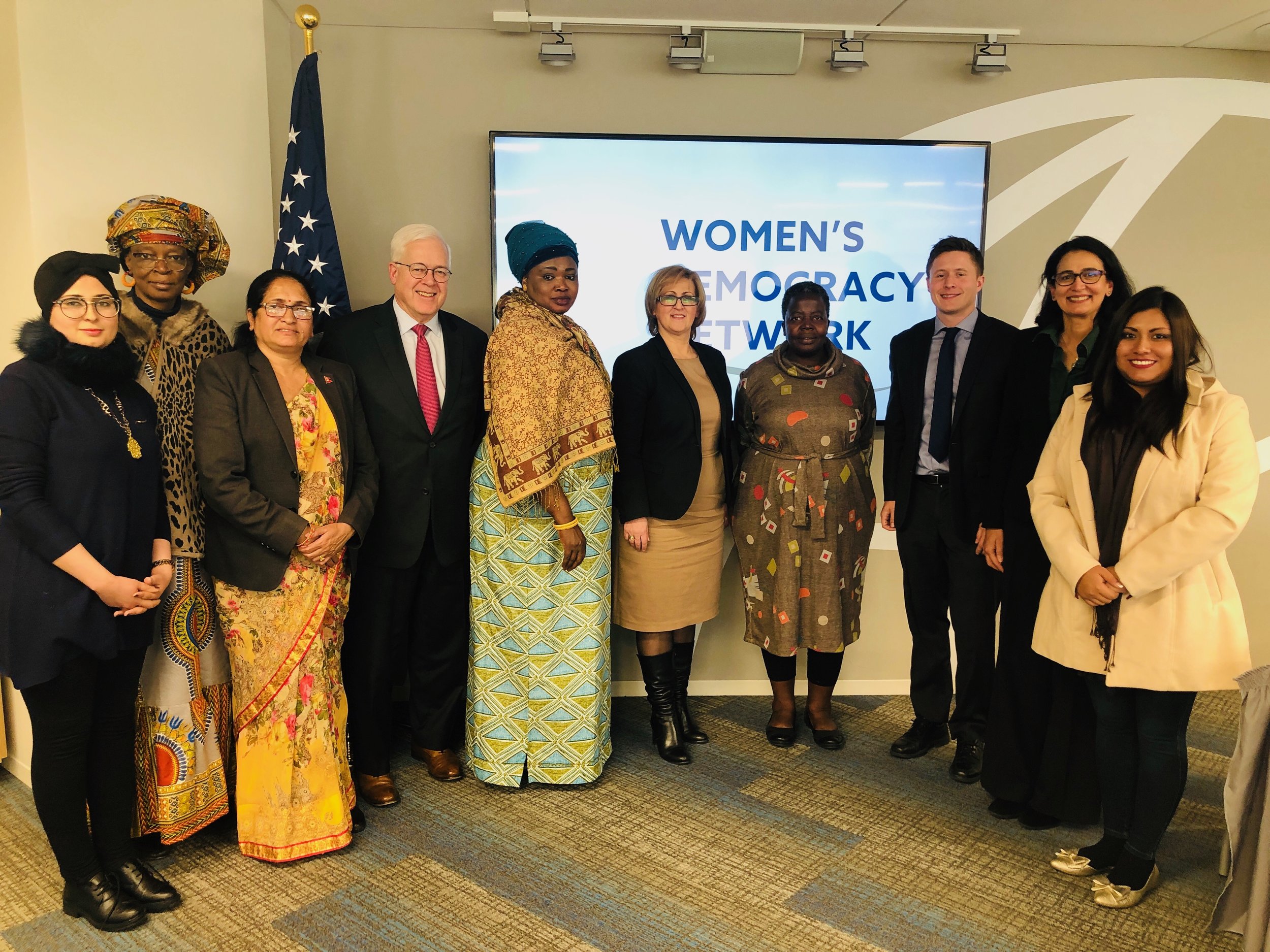BY MAYA GAINER
Maya Gainer is a second-year International Development student and the Editor-in-Chief of SAIS Perspectives. She previously worked as a researcher at Princeton University's Innovations for Successful Societies program, which took her to six continents to study governance and service delivery.
“We’ll be judged by what we get done for our citizens,” one mayor said, to nods from her fellow mayors around the table. As leaders of municipalities and communes from Peru to Mali, they all knew the pressure that comes with being the face of government in their constituents’ daily lives. This week, seven impressive women mayors gathered to share their experiences at a forum organized by the Women’s Democracy Network. In discussions with their counterparts and experts, the mayors considered how to take on the challenges of local governance.
One crucial area that touches every urban resident’s lifeis water and sanitation. Without adequate infrastructure and a strong system for planning, operation, and maintenance, municipalities suffer serious costs to their economies, public health, and livability. However, as several of the mayors in attendance noted,securing financing and authority to deliver water and sanitation services presents a challenge.
Research by the Urban Institutehighlights the political challenges that these determined women were facing. Many municipal governments depend on unpredictable and insufficient transfers from central governments to fund crucial services like water and sanitation. Often, they also lack the clear authority to plan and oversee projects without interference from the center.
The mayors and panelists Charles Cadwell and Matt Eldridge from the Urban Institute and Professor Tanvi Nagpal from the SAIS International Development programdiscussed the possibilities for overcoming these difficulties.Innovative financing strategies, such as taxation based on the increases in land value created by new infrastructure, paired microloans for both latrines and livelihoods, and outcome-based subsidies from donors are just a few of the ways municipalities can address financing gaps. By working together, small cities can also share the costs and risks of a major investment, such as a water treatment plant or a landfill. Cooperation between cities can give them a platform to collectively press for greater autonomy and resources from the central government. As one mayor added, building a close relationship with residents creates opportunities: by being visible and “making noise,” she was able to pressure the central government to start a project.
Around the world, mayors often have to address city residents’ most pressing problems without adequate resources or authority. As the women sharing their experiences this week made clear, the task is a challenging one, but combining their political skills with innovative approaches to municipal governance and financing offers new opportunities to improve local service delivery.
PHOTO CREDIT: Women’s Democracy Network, IRI.
From left: Mayor Chiraz Dhibi (Hassi El Frid, Tunisia), Mayor Mariame Diallo Djire (Commune III, Bamako, Mali), Mayor Sima Kumar Chhetri (Putali Bazaar, Nepal), Charles Cadwell (Urban Institute), Mayor Rohey Malick Lowe (Banjul, The Gambia), Mayor Sonja Stamenkova (Makedonska Kamenica, Macedonia), Mayor Angeline Kasipo (Kwekwe, Zimbabwe), Matt Eldridge (Urban Institute), Tanvi Nagpal (Johns Hopkins SAIS), Mayor Christina Nina Garnica (San Juan de Miraflores, Lima, Peru).
COVER PHOTO CREDIT: Rahul Ingle, GIZ via Wikimedia Commons. Licensed under CC BY 2.0.



